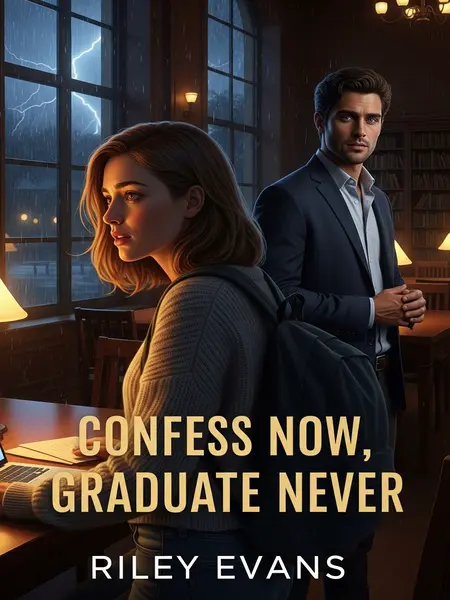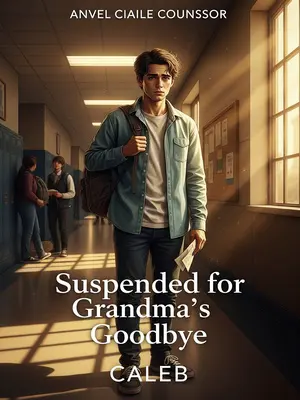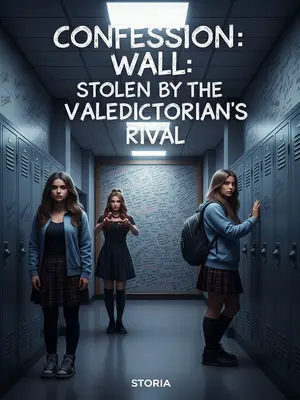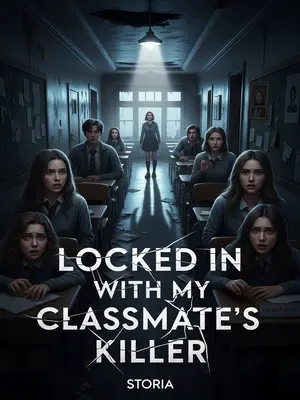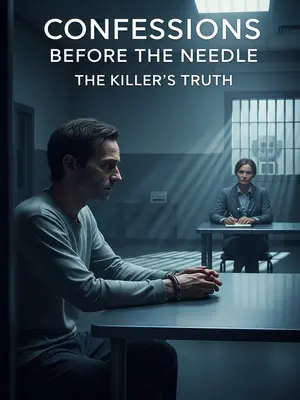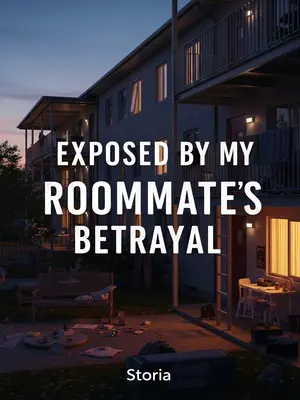Chapter 1: Snacks, Subtweets, and Academic Doom
The year I slacked off the hardest, I somehow got accepted into grad school—with my brother’s old friend as my advisor.
Honestly, I still have no clue how it happened. My application was a disaster, my GPA was hanging on by a thread, and I’d spent more hours binge-watching Food Network than prepping for interviews. Yet here I was—a walking cautionary tale—about to start grad school with the guy who used to watch me try to ride my bike straight into the creek just for kicks.
On stage, he was an academic superstar—sharp, smooth-talking, and intimidating with that no-nonsense, East Coast professor vibe.
He had this air about him, like he’d just stepped out of a New Yorker profile: pressed suit, not a single hair out of place, and a voice that could hush a rowdy lecture hall with a single, perfectly enunciated sentence. The kind of guy who’d probably correct your grammar in a dream—and you’d probably thank him for it, too. After that one, perfectly delivered sentence, you’d just sit there, stunned.
Off stage, I was a snack-gobbling gremlin—no shame—making a beeline for every free cookie in sight.
I had a sixth sense for food at university events. If there was a stale donut or a sad little veggie tray within fifty feet, I’d sniff it out. That was the grad student hustle—powered by caffeine, and whatever was left on the catering table after the faculty had their pick. My radar was always on, especially when it came to free food.
My plan was simple:
Ride his coattails and coast to my degree.
I figured, if I could just stay under the radar, maybe quote him in my papers, and keep my GPA barely afloat, I’d be set. It’s the American dream, right? Fake it till you make it. Not a bad strategy... in theory.
That was before he read my thesis, reached for his blood pressure meds, and posted on Facebook:
[Can a total idiot get into grad school these days?]
He didn’t tag me, but everyone knew. It was the kind of subtweet that got passed around group chats like wildfire. My phone buzzed for hours—and every vibration made my stomach drop.
The jerk completely threw me under the bus and wanted me to delay graduation.
He didn’t even sugarcoat it. Just said it straight: “You’re not ready. Maybe next year.” I just sat there, stunned, like I was getting held back in kindergarten—but with a side of existential dread—and a mountain of student loans.
So, late at night, out of pure spite, I sent him a rambling confession:
[Hey, I want to keep you in my heart.]
I was running on two cans of Monster and a family-size bag of Doritos. My brain screamed, “Don’t do it,” but my fingers kept typing. I hit send before I could chicken out. Too late to back out now.
He clutched at his chest like he was about to have a heart attack:
[You little menace, are you trying to turn me into a meme and get me canceled on Twitter?]
I could almost picture him—glasses askew, clutching his chest, imagining his entire career going up in smoke. I bet he lives in fear of going viral for all the wrong reasons. Poor guy.
At a conference packed with academic big shots, Dr. Graham Sinclair’s cool, deep voice echoed through the hall, his gold-rimmed glasses catching the overheads and flashing like a signal.
You could practically hear the hush fall as he started speaking. The grad students in the back row straightened up, and the old-timers in the front nodded like they were at Sunday service. His glasses caught the fluorescent lights, giving him this almost angelic—no, intimidating—glow. It was a total power move. Pause. Glow. Command the room.
A dark gray custom suit made him look even taller, standing ramrod straight, maxing out the Ivy League professor vibe.
He looked like he belonged in a glossy university brochure—the kind they hand out to nervous parents on campus tours. The suit probably cost more than my car, and he wore it like he’d been wearing suits since kindergarten.
The professors below all smiled like proud aunts at a family reunion:
“He was the state valedictorian back in the day, a genius who skipped three grades.”
“Look at that presence—Maple Heights University’s walking admissions brochure.”
“I hear he’s now the youngest grad advisor in the department. He’ll probably train up a whole new crop of prodigies.”
Someone whispered, “State valedictorian, skipped three grades.” Another leaned in, “He’s basically a prodigy factory.”
You could practically taste the envy and pride in the room, thick as the scent of catered coffee.
But beside me—
A senior who’s memorized every textbook (show-off).
A junior who’s half asleep (relatable).
A clueless freshman (bless their heart).
And me, eyeing the self-serve snack table like a hawk (priorities).
We were the Island of Misfit Toys, and the snack table was our promised land.
I’d already mapped out the fastest route in my head—just waiting for the right moment. One beat. Game face on.
A few minutes earlier, Dr. Sinclair had laid down the law:
“Pay attention and learn during the meeting. Focus on the material. Don’t get distracted.”
He didn’t even look at me when he said it, but I just knew that last part was for me. The man had a sixth sense for my shenanigans. It was almost impressive.
I snapped out of my daydream:
“Snacks? When do the snacks come out?”
I blurted it out before I could stop myself. I heard someone stifle a laugh. Dr. Sinclair’s jaw tightened, just a little.
He gritted his teeth and sighed:
“Let the senior professors have refreshments first—especially you, Riley Evans, don’t go stampeding and embarrass me.”
He threw in my name like it was a warning label.
The whole row turned to look at me. I shrugged, trying to look innocent, but my stomach picked that exact moment to growl. Classic.
On the surface, I nodded like an angel.
Inside, I was already planning my attack.
That’s a thousand-dollar buffet!
If you’re slow, you get nothing!
I was already strategizing: hit the mini quiches first, then the lemon bars. No time for small talk. This was war.
And then, finally, the meeting ended.
My friend blocked the left, the freshman flanked the right, and I dashed for the restricted zone.
We moved like a practiced team, years of cafeteria battles behind us. I felt like a running back at the Super Bowl—eyes on the prize, ready to stiff-arm anyone in my way.
“Jess, this lemon bar is insane!”
“Mm, this cheesecake is to die for.”
“Wait, when did they put out Ben & Jerry’s? I missed it!”
We swarmed the table like locusts, leaving a wasteland of napkins and empty trays behind.
It was glorious. The professors didn’t stand a chance. Someone made off with an entire plate of pigs in a blanket. I snagged the last macaron. The snack gods were smiling on us.
Dr. Sinclair was still surrounded, deep in academic conversation.
He looked like he wanted to be anywhere else, but he kept that polite, slightly pained smile glued on. I almost felt bad for him. Almost.
The rest of us inhaled food like it was a survival challenge—this was grad school’s version of The Hunger Games.
There’s something about free food that brings out the animal in people.
Every bite was a tiny victory over the system.
My advisor was networking; I was eating.
I was his biggest headache.
I knew he’d hear about it later. He always did. The man had a network of informants—probably the janitor, definitely the department secretary.
